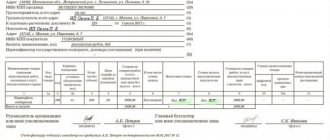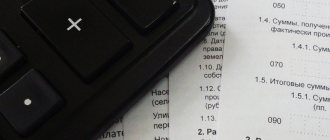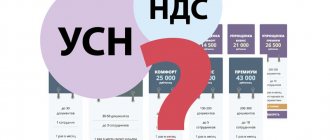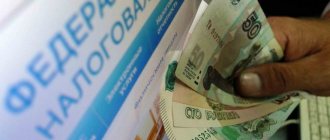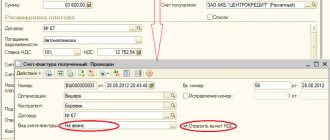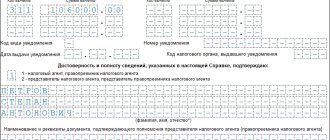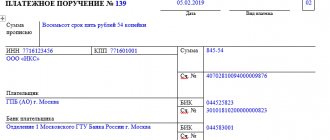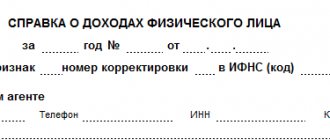Changes in wages and personal income tax
From 2021, the minimum wage is expected to be 9,489 rubles.
(the bill passed the first reading). The government should also increase child benefits by a factor of 1.032. In this case, from February 1, the amount of benefits will be as follows:
- registration in the early stages of pregnancy - 632.76 rubles;
- at the birth of a child - 16,873.54 rubles;
- for pregnancy and childbirth - 43,675.80 rubles. (minimum) and RUB 282,493.40. (maximum);
- for child care up to one and a half years - 3,163.79 rubles. (minimum for the first child for the unemployed and individual entrepreneurs), RUB 3,795.60. (minimum for the first child for employees with less than two years of experience or with low wages), RUB 6,327.57. (minimum for the second and subsequent), RUB 24,536.57. (maximum).
Despite the fact that at the time of preparation of the article, the project to approve the increasing coefficient is at the consideration stage, the likelihood of its adoption is extremely high.
Starting from 2021, the list of non-taxable personal income tax income will increase.
One-time payments of targeted social assistance at the expense of local budgets, budgets of constituent entities of the Russian Federation, the federal budget and extra-budgetary funds are exempt from taxation (clause 8 of Article 217 of the Tax Code of the Russian Federation, Federal Law of October 30, 2021 No. 304-FZ). The changes will also affect reporting: a new 3-NDFL form should appear. There is also a project for a new form 6-NDFL.
In 2021, the 2-NDFL certificate form remains the same, but it needs to be filled out in a new way: the Federal Tax Service of the Russian Federation is introducing new codes for filling it out.
Now, in order to reflect compensation for unused vacation, the accountant must indicate the code “2013”, for severance payments - “2014”, written off bad debt - “2611”.
Income tax ↑ top
In terms of income tax, the following changes have occurred:
- A new form 6-NDFL has been introduced since 2021. The composition of this form has not been changed. The report, as before, consists of a title page and two sections. The first section provides generalized indicators, and the second - the dates and amounts of profit received, as well as the amount of tax deducted from it.
Changes in 6-NDFL from 2021 are as follows:
- The barcode has been changed.
- New fields for filling have been added to the title page, and new code values have been developed.
- The procedure for filling out the form when reorganizing a legal entity has been updated.
- New code values have been developed for filling out the column about the place of submission of the report.
The deadlines for submitting 6-NDFL in 2021 have not been changed. Still, the quarterly report must be submitted by the last day of the month that follows the reporting quarter. The annual report must be submitted by the first of April of the next year. However, if the last date of delivery falls on a holiday or day off, the deadline for delivery is moved to the next working day.
For 2021, legal entities and private businessmen will have to report using a new form. about the deadlines for submitting 6-NDFL for 2017 in article 6-NDFL for the 4th quarter: due date.
The deadline for submitting 6-NDFL for the 4th quarter of 2021 falls on April 2, 2021. In general, the deadline for submitting the annual report is the first of April. However, this year the first of April falls on a Sunday, so the transfer rule applies: the report can be submitted on the next working day, that is, the second of April.
This means that the deadline for submitting 6-NDFL for 2021 has not changed . It was just postponed by one day due to the fact that the deadline (the first day) falls on a weekend.
- Another change in terms of income tax was the introduction of a new form 2-NDFL from 2021. No fundamentally new form was developed. The composition of the report remains the same. It's just that some lines were completely removed from the form, and some new lines were added. Thus, the changes in 2-NDFL in 2018 are as follows:
- Two new columns were added to the title page. The first of them contains the code value of the form of reorganization of the legal entity, and the second contains the TIN or KPP of the reorganized legal entity or its branch.
- From the second section of the form, the line in which the residential address of the individual for whom the certificate was generated was written down was removed.
- Investment deductions were excluded from the fourth section.
- The procedure for filling out a certificate during the reorganization of a legal entity has changed.
- New code values have been introduced for income and deductions.
The deadlines for submitting 2-NDFL in 2021 have been changed. Now the deadline for submitting the report depends on whether tax has been withheld from the income paid. If the tax is withheld, the certificate must be provided before the first of April, and if not withheld, before the first of March.
Changes in insurance premiums
From January 1, 2021, new limits for insurance premiums should apply:
- for compulsory pension insurance - 1,021 thousand rubles.
- for compulsory social insurance in case of temporary disability and in connection with maternity - 815 thousand rubles.
For individual entrepreneurs, fixed contributions paid to the funds will change:
- Pension fund - 26,545 rubles.
- Health insurance fund - 5,840 rubles.
Another change regarding insurance premiums is a new DAM form, but this is still a draft. Even if it is signed, reporting for 2017 will still need to be done using the old form.
Changes in income tax
From January 1, 2021 to December 31, 2022, a zero income tax rate was established for taxpayers engaged in tourism and recreational activities in the Far East.
To do this, certain conditions must be met. Here are just two of them:
- whether the taxpayer owns a hotel and/or other means of accommodating tourists
- the share of income from tourism and recreational activities should be at least 90%.
Basis - Federal Law of July 18, 2021 No. 168-FZ.
The list of types of activities falling under this benefit will be established by the Government of the Russian Federation.
The changes also affected the composition of R&D expenses. Thus, from 2021 to 2021, R&D expenses, taken into account with K = 1.5, can include the costs of acquiring exclusive rights to inventions, samples and utility models that were used in the development process.
From January 1, 2021, insurance premiums can be included in other expenses, to which the standard of 75% of labor costs applies.
Basis - Federal Law of July 18, 2021 No. 166-FZ.
Procedure for providing information
Taxpayers will have to remind inspectors of previously provided documents. If upon receipt of the request the corresponding notice is not sent, the regulatory authority will acquire the right to impose a penalty. Responsibility will arise for failure to disclose data.
The deadlines for sending documents for counter inspections have also been adjusted. Now it takes not 5, but 10 days to fulfill the requirement. The amendment allows companies and entrepreneurs to collect the full amount of information. The legislator retained the right of taxpayers to apply for an extension of the deadline.
Persons involved in control procedures as witnesses will be given protocols against signature. Refusal to receive the document will be recorded. The innovation is designed to reduce cases of falsification of inspection materials.
Property tax changes
From January 1, property tax benefits will be limited.
According to paragraph 10 of Art. 1 of Federal Law No. 286-FZ of September 30, 2021, taxpayers will have the right to apply property benefits only if they are provided for by regional legislation. We are talking about:
- property located on the territory of the Russian part of the Caspian Sea bottom;
- facilities with high energy efficiency;
- movable property that was registered after January 1, 2013.
In 2021, changes will affect the property of foreign legal entities that do not operate in the Russian Federation through permanent representative offices.
We are talking about objects for which the tax is calculated based on the cadastral value. In accordance with Federal Law No. 286-FZ of September 30, 2021, if the cadastral value is established in the middle of the year, then advance payments and property taxes are calculated for the current year. The day of entering data into the Unified State Register is important.
Moreover, the property tax declaration has changed. This means that companies will fill out a new form based on the results of 2017 (Order of the Federal Tax Service of Russia dated March 31, 2021 No. MMB-7-21/271).
Tax changes from 2021
Changes in parts one and two of the Tax Code of the Russian Federation come into force in stages.
In part one of the Tax Code of the Russian Federation, from November 27, 2017, the wording for foreign organizations providing services to Russian customers in electronic form, subject to VAT, has been clarified (clause 4.6 of Article 83, subclause 4 of clause 5 of Article 84 of the Tax Code of the Russian Federation). We are talking about services provided via the Internet automatically, using information technology (Clause 1, Article 174.2 of the Tax Code of the Russian Federation).
It has been clarified that foreign organizations must register with the Russian tax office and submit a VAT return if they provide services electronically to various Russian customers (not only individuals - not entrepreneurs).
The remaining changes in part one of the Tax Code of the Russian Federation come into force on January 1, 2018.
Firstly, the official publication of deflator coefficients has become possible not only in the Rossiyskaya Gazeta (Clause 2 of Article 11 of the Tax Code of the Russian Federation).
Secondly, the rules for paying taxes, fees, insurance premiums (fines, fines) during the reorganization of a legal entity, established by Article 50 of the Tax Code of the Russian Federation, will be extended to cases where a tax agent fulfills the obligation to pay personal income tax during a reorganization (Clause 11, Article 50 of the Tax Code RF).
Part two of the Tax Code of the Russian Federation clarifies the rules relating to VAT, excise taxes, personal income tax, corporate income tax, mineral extraction tax, simplified taxation system, unified agricultural tax, state duty and insurance contributions.
From 11/27/2017
Part of the down payment towards the cost of the purchased car, financed from the federal budget, is exempt from personal income tax (Clause 37.3, Article 217 of the Tax Code of the Russian Federation).
Income subject to personal income tax is considered received by an individual on the date of writing off his debt from the organization’s balance sheet only if there is an interdependence between them (subclause 5, clause 1, article 223 of the Tax Code of the Russian Federation). We are talking about debts written off from 01/01/2017.
The procedure for recognizing income and expenses, including in foreign currency, from activities related to the production of hydrocarbons at a new offshore hydrocarbon field has been clarified (clause 1.1 of article 271, clause 1.1 of article 272, subclause 1 of clause 1 Article 275.2, paragraph 2 of Article 299.3, paragraph 2 of Article 299.4 of the Tax Code of the Russian Federation).
When applying the simplified tax system with the object of taxation “income” for periods from 01/01/2017 and when paying UTII, the 50% limitation on tax reduction for entrepreneurs who do not pay remuneration to individuals has been removed (clause 3.1 of article 346.21, clause 2.1 of article 346.32 of the Tax Code RF).
The list of types of activities for which organizations and entrepreneurs working on the simplified tax system can apply reduced rates of insurance premiums, starting from 01/01/2017 (subclause 5, clause 1, article 427 of the Tax Code of the Russian Federation) has been brought into compliance with OKVED2. Such organizations and entrepreneurs should check whether their activities are subject to benefits after changes in the wording of the Tax Code of the Russian Federation.
The conditions for the application of reduced insurance premium rates by non-profit organizations (with the exception of state (municipal) institutions) applying the simplified tax system and operating in the field of:
- social services for citizens,
- scientific research and development,
- education,
- healthcare,
- culture and art (the activities of theaters, libraries, museums and archives);
- mass sports (with the exception of professional).
For these organizations, the 70 percent income limit is determined by summing up the income specified in paragraph 1 and subparagraph 1 of paragraph 1.1 of Article 346.15 of the Tax Code of the Russian Federation (clause 7 of Article 427 of the Tax Code of the Russian Federation).
The deadline for paying insurance premiums for compulsory pension and health insurance from an income exceeding 300,000 rubles per calendar year has been changed for contributors who do not pay remuneration to individuals - entrepreneurs and “self-employed” individuals (lawyers, mediators, notaries engaged in private practice , arbitration managers, appraisers, patent attorneys and other persons engaged in private practice.The deadline for payment of such insurance premiums has been postponed from April 1 to July 1 of the year following the expired calendar year (Clause 2 of Article 432 of the Tax Code of the Russian Federation).
From 01/01/2018
In 2021, changes to VAT, excise taxes, personal income tax, corporate income tax, state duty, mineral extraction tax (on oil production), simplified tax system, unified agricultural tax, PSN, transport tax, corporate property tax, land tax and insurance premiums will come into force.
Value added tax
For VAT tax purposes, the procedure for determining the place of provision has been clarified:
- services for leasing aircraft engines and other aviation equipment. Such services are not considered to be provided on the territory of the Russian Federation if, in accordance with the legislation of a foreign state, the place of sale of such services is recognized as the territory of such a foreign state (subclause 4, clause 1, article 148 of the Tax Code of the Russian Federation);
- services for pipeline transportation of natural gas. These services are considered provided in Russia in cases provided for by international treaties of the Russian Federation (subclause 4.1, paragraph 1, article 148 of the Tax Code of the Russian Federation).
The exemption from VAT taxation of scrap and waste of ferrous and non-ferrous metals has been canceled (subclause 25, clause 2, article 149 of the Tax Code of the Russian Federation). Since 2018, the sale of such property is subject to tax.
The application of the VAT rate of 10 percent has been extended until the end of 2021 for:
- transfer of breeding livestock and poultry for ownership and use under financial lease (leasing) agreements with the right of purchase (Article 26.3 of Federal Law No. 118-FZ of August 5, 2000).
- provision of services for domestic air transportation of passengers and baggage (Part 6, Article 3 of Federal Law No. 83-FZ dated 04/06/2015).
The tax consequences of increasing the cost of shipped raw animal skins, as well as scrap and waste of ferrous and non-ferrous metals, secondary aluminum and its alloys have been clarified (clause 10 of Article 154 of the Tax Code of the Russian Federation). The VAT tax base for such transactions is determined by tax agents, that is, organizations and entrepreneurs who purchase this property. They also pay tax to the budget at the calculated rate and can take it as a deduction, and also submit VAT returns in electronic form using the TKS. If the acquired property is used for VAT-free transactions, the tax will have to be restored (clause 8 of Article 161, clause 4 of Article 164, clause 15 of Article 167, clauses 1, 2 of Article 169, subclauses 3, 4 clause 3 of article 170, clause 3, 12 of article 171, clause 4.1 of article 173, clause 5 of article 174 of the Tax Code of the Russian Federation).
According to the new rules, these tax agents must take into account the increase in the value of the specified property when determining the VAT tax base for the quarter in which documents for drawing up adjustment invoices are drawn up. In this case, the seller draws up invoices, adjustment invoices without taking into account VAT amounts and with the inscription (stamp) “VAT is calculated by the tax agent” (clause 5 of Article 168 of the Tax Code of the Russian Federation). When the value of the specified property decreases, the buyer takes for deduction the difference between the amounts of VAT calculated on the basis of the cost of shipments before and after such a decrease (clause 13 of Article 171 of the Tax Code of the Russian Federation).
And sellers of raw animal skins, as well as scrap and waste of ferrous and non-ferrous metals, secondary aluminum and its alloys are required to pay VAT if the buyers are individuals, as well as in the cases specified in paragraphs 7 and 8 of clause 8 of Article 161 of the Tax Code of the Russian Federation ( clause 3.1 of article 166, clause 1 of article 168 of the Tax Code of the Russian Federation).
The tax consequences in the case of the acquisition of goods (work, services), including fixed assets and intangible assets, property rights, through subsidies and budget investments have been clarified. “Input” and “import” VAT on such objects is not deductible, but is taken into account as expenses for profit tax purposes - subject to separate accounting of VAT amounts (clauses 1, 2.1 of Article 170 of the Tax Code of the Russian Federation).
If budget investments are received to reimburse costs associated with payment for purchased goods (works, services), then VAT accepted for deduction should be restored. In case of partial reimbursement of costs, the amount of tax accepted for deduction is subject to restoration in the corresponding share (subclause 6, clause 3, article 170 of the Tax Code of the Russian Federation).
Excise taxes
For excise tax purposes, a procedure has been established for issuing a registration certificate for a person performing operations for processing middle distillates (Article 179.6 of the Tax Code of the Russian Federation). The definitions of straight-run gasoline and middle distillates, the concept of “production of straight-run gasoline, benzene, paraxylene, orthoxylene” have been clarified (subclauses 10, 11, 25 clause 1 of Article 181, subclause 21 clause 1 of Article 182 of the Tax Code of the Russian Federation). The object of excise taxation upon transfer within the structure of the organization of produced excisable goods for further production has been clarified (subclause 8, clause 1, article 182 of the Tax Code of the Russian Federation). New objects of excise taxation and the procedure for presenting these amounts for deduction have appeared (subclauses 32, 33, clause 1, article 182, clause 2, article 195, clause 4, article 199, clause 25, article 200, clauses. 25, 26, Article 201 of the Tax Code of the Russian Federation).
The volume of alcohol products returned by the buyer to the manufacturer that are marked with federal special marks is exempt from excise taxes (clause 14 of article 187, clause 5 of article 200 of the Tax Code of the Russian Federation).
Excise tax rates are differentiated for the first and second half of 2021 and are set for 2021 (clause 1 of article 193 of the Tax Code of the Russian Federation). For the 1st half of 2018, excise tax rates were increased:
- for pipe, smoking, chewing, sucking, snuffing, hookah tobacco - from 2520 rubles to 2772 rubles per 1 kg;
- for cigars - from 171 rubles to 188 rubles per 1 piece;
- cigarillos (cigaritas), bidis, kretek – from 2671 rubles to 2428 rubles per 1,000 pieces;
- class 5 motor gasoline from 10,535 rubles to 11,213 rubles per 1 ton.
- diesel fuel - from 7072 rubles to 7665 rubles per 1 ton;
- middle distillates - from 8112 rubles to 8662 rubles per 1 ton.
At the same time, for the 1st half of 2021, excise rates on cigarettes and cigarettes were reduced to 1,562 rubles per 1,000 pieces + 14.5 percent of the estimated cost, calculated based on the maximum retail price, but not less than 2,123 rubles per 1,000 pieces.
For the period 2021–2021, excise tax rates for passenger cars have been established:
- with engine power over 147 kW (200 hp) and up to 220 kW (300 hp) inclusive;
- with engine power over 220 kW (300 hp) and up to 294 kW (400 hp) inclusive;
- with engine power over 294 kW (400 hp) and up to 367 kW (500 hp) inclusive;
- with an engine power of over 367 kW (500 hp).
Updated:
- the procedure for applying the coefficient for excise tax deductions calculated by a taxpayer who has a certificate for processing straight-run gasoline (clause 15 of Article 200 of the Tax Code of the Russian Federation);
- procedure for deducting advance payment of excise tax when purchasing cognac distillates (Clause 16, Article 200 of the Tax Code of the Russian Federation):
- the estimated period for providing a bank guarantee for the purchase (transfer), import of cognac distillate into the territory of the Russian Federation from the territories of the member states of the Eurasian Economic Union, as well as the validity period of such a bank guarantee (clause 11, subclause 2 of clause 12 of Article 203.1 of the Tax Code of the Russian Federation );
- payment when purchasing cognac distillate of the advance payment of excise tax (subclauses 2.1, 3.1 of Article 204 of the Tax Code of the Russian Federation).
Excise payers who have a certificate of registration of a person carrying out operations for processing middle distillates are allowed a refund (offset, return) based on the results of the month for the difference between the calculated excise tax and deductions (subclause 6, clause 1, article 203.1 of the Tax Code of the Russian Federation).
Personal income tax
The amount of personal income tax paid is excluded from the expenses for the acquisition of securities taken into account when taxing income from their sale (clause 13 of Article 214.1 of the Tax Code of the Russian Federation).
The obligations of the legal successor of the reorganized organization to submit reports in forms 2-NDFL, 6-NDFL and in the form from Appendix No. 2 to the corporate income tax declaration approved by order of the Federal Tax Service of Russia dated October 19, 2016 No. ММВ-7-3/ [email protected] ] (clause 5 of article 230 of the Tax Code of the Russian Federation).
Corporate income tax
Not taken into account for taxation:
- income of a unitary enterprise in the form of property (except for funds), which was received free of charge from the owner or an authorized body (subclause 26, clause 1, article 251 of the Tax Code of the Russian Federation);
- income from the sale of shares (stakes) received by an organization that is subject to foreign sanctions against Russia (subclause 57, clause 1, article 251 of the Tax Code of the Russian Federation). Accordingly, the cost of such shares (shares) is not included in expenses (clause 48.22 of Article 270 of the Tax Code of the Russian Federation). The rule is valid until 12/31/2027 inclusive.
For the purposes of creating a reserve for doubtful debts, the following has been clarified:
- the procedure for reducing accounts receivable with different periods of occurrence for accounts payable. The reduction of such debts by accounts payable is carried out starting from the first in time of occurrence (clause 1 of Article 266 of the Tax Code of the Russian Federation);
- grounds for recognizing receivables as bad. A new basis is the release of a citizen declared bankrupt from further fulfillment of creditors’ claims for such debts (they are considered repaid) in accordance with Federal Law of October 26, 2002 No. 127-FZ “On Insolvency (Bankruptcy)” (clause 2 of Article 266 of the Tax Code RF).
An investment tax deduction has been introduced for organizations in the amount of no more than 90 percent of the amount of expenses for the acquisition (creation), completion, additional equipment, reconstruction, modernization, technical re-equipment of fixed assets belonging to the third to seventh depreciation groups, at the location of the organization and its separate divisions (new article 286.1 of the Tax Code of the Russian Federation). In the case of applying an investment deduction, such amounts are not written off as expenses through depreciation, including using a depreciation bonus (clause 2 of Article 256, clause 5.1 of Article 270 of the Tax Code of the Russian Federation).
The organization has the right to reduce the income tax (advance payment), calculated at the generally established rate and credited to the federal budget, by 10 percent of the amount of such expenses, and the tax (advance payment), calculated at the generally established rate and credited to the budget, by 80 percent of the amount of such expenses. subjects of the Russian Federation. In this case, the amount of tax payable to the federal budget can be reduced to zero. And the remaining amount of expenses can be taken into account as part of the investment deduction in subsequent years.
The following are not entitled to apply an investment deduction:
- organizations participating in regional investment projects;
- organizations - residents of special economic zones;
- organizations - participants of the Special Economic Zone in the Magadan Region;
- organizations carrying out activities related to the production of hydrocarbons at a new offshore hydrocarbon field;
- organizations - participants of the free economic zone;
- organizations - residents of the territory of rapid socio-economic development or residents of the free port of Vladivostok;
- organizations participating in the Skolkovo project;
- foreign organizations recognized as tax residents of the Russian Federation.
The decision to apply an investment tax deduction applies to all fixed assets of an organization belonging to the third to seventh depreciation groups and is reflected in the accounting policy for tax purposes. The application (refusal to apply) of the investment deduction is allowed from the beginning of the next tax period - the calendar year.
Please note: from 2021, transactions of Russian economic entities with a Russian organization that has applied an investment deduction are controlled regardless of the transaction amount (subclause 9, clause 2, article 105.14 of the Tax Code of the Russian Federation). When conducting a desk audit of a corporate income tax return in which an investment deduction is claimed, the tax inspectorate has the right to demand that within five days an explanation of the application of the investment deduction, as well as primary and other documents confirming the legality of the application of the deduction (clause 8.8 of Article 88 of the Tax Code) RF).
If the fixed asset in respect of which the organization applied the investment deduction was disposed of (except for liquidation) before the expiration of its useful life, then the unpaid amount of income tax will have to be restored and transferred to the budget with the payment of penalties (clause 12 of Article 286.1 of the Tax Code of the Russian Federation ). Under this condition, it is allowed to reduce the income from the sale of a fixed asset by its original cost (subclause 4, clause 1, article 268 of the Tax Code of the Russian Federation).
USN and Unified Agricultural Tax
When applying the simplified tax system, the amounts received are not included in income:
- homeowners' associations,
- property owners' associations,
- managing organizations,
- horticultural, gardening or dacha non-profit partnerships (non-profit partnerships),
- housing, horticultural, gardening, dacha or other specialized consumer cooperatives
from owners (users) of real estate in payment for utilities provided by third parties (clause 1.1 of article 346.15 of the Tax Code of the Russian Federation).
For organizations and entrepreneurs who pay the Unified Agricultural Tax, the basis for exemption from property tax has been clarified. Now there is no need to pay tax only on property used in the production of agricultural products, primary and subsequent (industrial) processing and sale of these products, as well as in the provision of services by agricultural producers (Clause 3 of Article 346.1 of the Tax Code of the Russian Federation).
Patent tax system (PTS)
An entrepreneur is considered to have lost the right to use PSN in two cases (clause 6 of Article 346.45 of the Tax Code of the Russian Federation):
- if, since the beginning of the calendar year, income from sales for all types of business activities to which the PSN is applied has exceeded 60 million rubles (when combined with other taxation systems, this indicator is determined for all types of activities);
- if during the year the average number of employees was 15 people or more for all types of activities.
If the right to use the PSN is lost, the entrepreneur is considered to have switched either to the general tax regime or to the special regime that he combined with the use of the PSN. In this regard, the norms of paragraph 8 of Article 346.45 and paragraph 3 of Article 346.46 of the Tax Code of the Russian Federation have been clarified.
Transport tax
For expensive cars (from 3 to 5 million rubles), up to 2 years have passed since their production year, the increasing coefficient has been reduced (clause 2 of Article 362 of the Tax Code of the Russian Federation). This innovation is presented in Table 1.
Table 1
. Changes in increasing coefficients for transport tax
| Date from the year of manufacture of the car | Increasing factor | |
| It became | Was | |
| no more than 1 year | 1,1 | 1,5 |
| from 1 year to 2 years | 1,3 | |
| from 2 to 3 years | 1,1 | |
Organizational property tax
The procedure for taxation of movable property registered as fixed assets on January 1, 2013 has been clarified.
If no more than 3 years have passed since the date of release of the property or it is classified as innovative highly efficient equipment, constituent entities of the Russian Federation can establish additional tax benefits up to complete tax exemption. Otherwise, the tax rate on such property cannot exceed 1.1 percent (clause 3.3 of Article 380, Article 381.1 of the Tax Code of the Russian Federation).
Land tax
From 2021, the procedure for calculating land tax (advance payment for it) has been clarified. Now the tax (advance payment) is calculated using the ownership coefficient in the following cases (clause 7.1 of Article 396 of the Tax Code of the Russian Federation):
- changes in the type of permitted use of the land plot;
- transfer of a plot from one category of land to another;
- changes in the area of land.
Such changes are taken into account from the date of amendments to the Unified State Register of Real Estate (clause 1 of Article 391 of the Tax Code of the Russian Federation).
Insurance premiums
From 01/01/2018, the object of taxation of insurance premiums has been clarified:
- for organizations and entrepreneurs paying remuneration to individuals under agreements on the alienation of exclusive rights and under licensing agreements. Now insurance premiums are levied on payments under these contracts, the subject of which are any results of intellectual activity specified in subparagraphs 1 - 12 of paragraph 1 of Article 1225 of the Civil Code of the Russian Federation, and not only works of science, literature, art (subparagraph 3, paragraph 1, paragraph 4, Article 420, paragraph 8, subparagraph 4, paragraph 9, Article 421, subparagraph 2, paragraph 3, Article 422 of the Tax Code of the Russian Federation);
- for non-paying entrepreneurs and “self-employed” persons - lawyers, mediators, notaries engaged in private practice, arbitration managers, appraisers, patent attorneys and other persons engaged in private practice. Now the object of taxation of insurance premiums is the implementation of entrepreneurial (professional) activities (clause 3 of Article 420 of the Tax Code of the Russian Federation).
For the period 2021-2020, the amount of insurance premiums has been specified in a fixed amount for entrepreneurs and “self-employed” individuals who do not pay remuneration to individuals. This change is presented in Table 2.
Table 2.
Changes in insurance premiums in a fixed amount
| Type of insurance premiums | It became | Was | Norm of the Tax Code of the Russian Federation |
| Contributions to mandatory pension insurance from income not exceeding 300,000 rubles per year | In fixed size: 26,545 rubles for the billing period of 2021, 29,354 rubles for the billing period of 2021, 32,448 rubles for the billing period of 2021 | In the amount determined as the product of the minimum wage established at the beginning of the calendar year for which insurance premiums are paid, increased by 12 times, and the tariff of insurance premiums for compulsory health insurance | Subclause 1 of clause 1 of Article 430 of the Tax Code of the Russian Federation |
| Contributions to mandatory pension insurance from income over 300,000 rubles per year | In fixed size: 26,545 rubles for the billing period of 2021 (29,354 rubles for the billing period of 2021, 32,448 rubles for the billing period of 2020) plus 1.0 percent of the payer’s income exceeding 300,000 rubles for the billing period | In the amount determined as the product of the minimum wage established at the beginning of the calendar year for which insurance premiums are paid, increased by 12 times, and the rate of insurance premiums for mandatory insurance plus 1.0 percent of the amount of income exceeding 300,000 rubles for the billing period | |
| Contributions to compulsory medical insurance | In fixed size: 5840 rubles for the billing period of 2021, 6884 rubles for the billing period of 2021, 8426 rubles for the billing period of 2021 | The fixed amount of contributions is determined as the product of the minimum wage established at the beginning of the calendar year for which insurance premiums are paid, increased by 12 times, and the tariff of insurance premiums for compulsory medical insurance | Subclause 2 of clause 1 of Article 430 of the Tax Code of the Russian Federation |
| Contributions to compulsory social security in general for peasant (farm) farms | A product of a fixed size, which is: 26,545 rubles for the billing period of 2021, 29,354 rubles for the billing period of 2021, 32,448 rubles for the billing period of 2021, and the number of all members of the peasant (farm) household, including the head of the peasant (farm) household | For each type of compulsory insurance as the product of the minimum wage established at the beginning of the calendar year for which insurance premiums are paid, increased by 12 times, the tariffs of insurance premiums for compulsory insurance and compulsory medical insurance, and the number of all members of the peasant (farm) household, including the head of the peasant (farm) ) farms | Clause 2 of Article 430 of the Tax Code of the Russian Federation |
| Contributions to compulsory health insurance in general for peasant (farm) households | The product of a fixed amount of insurance premiums, which is: 5840 rubles for the billing period of 2021, 6884 rubles for the billing period of 2021, 8426 rubles for the billing period of 2021, and the number of all members of the peasant (farm) household, including the head of the peasant (farm) household |
Entrepreneurs and “self-employed” persons who do not pay remuneration to individuals may not pay insurance premiums “for themselves” for compulsory pension and health insurance for certain periods specified in Part 1 of Article 12 of the Federal Law of December 28, 2013 No. 400-FZ, if at this time they were not engaged in entrepreneurial or other professional activities. In order to legally avoid paying insurance premiums, such persons should submit to the tax office at their place of registration an application for exemption from paying insurance premiums and supporting documents (clause 7 of Article 430 of the Tax Code of the Russian Federation).
From 01/01/2018, the calculation of insurance premiums is considered not submitted if it contains (clause 7 of Article 431 of the Tax Code of the Russian Federation):
- errors were made in the information for each individual about the amount of remuneration in their favor, the basis for calculating insurance contributions for compulsory pension insurance within the established limit and the amount of such contributions, the basis for calculating insurance contributions for compulsory pension insurance at an additional rate, the amount of insurance contributions for compulsory pension insurance at an additional rate for the billing (reporting) period and (or) for each of the last three months of the billing (reporting) period:
- the amounts of the same indicators for all individuals do not correspond to the same indicators for the payer of contributions as a whole;
- Inaccurate personal data identifying insured individuals is indicated.
From 01/01/2019
From 2021, the exemption of taxpayers from the Unified Agricultural Tax from paying VAT will be canceled - paragraph 2 of paragraph 3 of Article 346.1 of the Tax Code of the Russian Federation will no longer be in force. And the “input” VAT cannot be taken into account for the purposes of the Unified Agricultural Tax as part of expenses (subclause 8, clause 2, article 346.5 of the Tax Code of the Russian Federation).
Organizations and entrepreneurs will be able to avoid paying VAT (clause 1 of Article 145 of the Tax Code of the Russian Federation):
- or in the year of transition to payment of unified agricultural tax,
- or if for the previous year the amount of income from the sale of goods (work, services) in the implementation of activities in respect of which the Unified Agricultural Tax is paid, excluding VAT, did not exceed in aggregate:
- 100 million rubles for 2021,
- 90 million rubles for 2021,
- 80 million rubles for 2021,
- 70 million rubles for 2021,
- 60 million rubles for 2022 and subsequent years.
To take advantage of the exemption, you will need to submit a corresponding written notification to the tax office at the place of registration of the organization or entrepreneur (clause 3 of Article 145 of the Tax Code of the Russian Federation).
From 2021, when switching to the payment of Unified Agricultural Tax, it will be necessary to restore the VAT previously accepted for deduction, according to the rules of subparagraph 2 of paragraph 3 of Article 170 of the Tax Code of the Russian Federation (clause 8 of Article 346.3 of the Tax Code of the Russian Federation).
In addition, the procedure for VAT taxation of services provided by foreign organizations in electronic form will be clarified. Such services are taxed only if the place of their provision is recognized as the territory of the Russian Federation. From 2021, it will be necessary to confirm the place of provision of services in electronic form using special registers of transactions (clause 5 of Article 148 of the Tax Code of the Russian Federation). Foreign organizations registered with Russian tax inspectorates will have to pay VAT on the provision of electronic services to Russian organizations and entrepreneurs independently (clauses 2 - 4 of Article 174.2 of the Tax Code of the Russian Federation). After this, they will be able to claim a VAT deduction - if they have an agreement, a settlement document highlighting the amount of VAT and indicating the TIN and KPP of the foreign organization, as well as documents for the transfer of payment to the foreign organization, including VAT. Information about such foreign organizations will be posted on the official website of the Federal Tax Service of Russia (clause 2.1 of Article 171, clause 1 of Article 172 of the Tax Code of the Russian Federation).
Changes to special modes
From January 1, 2021:
- a new form of KUDiR was approved.
Do not forget that the income limit for switching to the simplified tax system: 112.5 million rubles/9 months for 2017.
Moreover, when calculating the single tax, you do not need to take into account:
- assets as a contribution to property;
- dividends refused by participants.
Basis - Federal Law of September 30, 2021 No. 286-FZ.
New deflator coefficients have been established.
From January 1, 2021, individual entrepreneurs with UTII and/or a patent have the right to take into account the costs of purchasing a cash register when calculating the single tax, but not more than 18,000 rubles. for 1 CCP.
In this case, the following conditions must be met:
- The cash register is included in the register of cash registers;
- CCP registration took place from February 1, 2021 to July 1, 2019.
Find out who was given a deferment at online checkouts.
Simplified system ↑ up
Changes to the simplified tax system in 2021 are as follows:
- A new form of income and expense ledger was introduced. The following has been changed:
- A new section has appeared that contains information about the trading fee.
- There is no need to certify the book.
- There is no need to record excess profits.
- Private business owners can now report insurance premiums.
- The deflator coefficient has acquired a new meaning. Its value was 1.481. The income limit that allows you to remain in this regime or switch to it must be indexed by this coefficient. However, this rule does not apply until 2021.
- Simplification costs now include the costs of network training. Costs can be taken into account if the company employs at least one university graduate for at least one year.
- The limit on income received (both sales and non-sales) for legal entities to switch to a simplified taxation system from January of this year will be 112.5 million rubles. For private businessmen, there is still no limit on income received.
- It was clarified that income under the simplified taxation system does not include contributions from homeowners' associations, SNTs and management companies.
- Contributions to the property assets of participants, regardless of the share in the management company, do not increase income on the simplified basis. Until the beginning of 2021, participant assistance did not increase simplified income only in two exceptional cases:
- The participant transferred the property to replenish net assets;
- The money or property was contributed by a participant who owns a share of more than fifty percent in the management company.
Changes in transport tax
The calculation of transport tax for 2021 must be reflected in a new declaration, the form of which was approved by order of the Federal Tax Service of Russia dated December 5, 2021 No. ММВ-7-21/668.
The new form has new lines that allow you to reflect payments using the Platon system, and thereby reduce transport tax.
The changes also affected the second section of the declaration. It now includes:
- “Vehicle registration date”;
- “Date of termination of vehicle registration (deregistration)”;
- "Year of manufacture of the vehicle."
Report on financial results of activities (f. 0503721)
The main changes are as follows:
- KOSGU codes for other income and debt servicing are brought into line with the additional detail introduced by orders of the Ministry of Finance of the Russian Federation dated September 20, 2018 No. 198n and dated December 27, 2017 No. 255n in Directive No. 65n.
- The following indicators have been moved to other sections: deferred income (account 0 401 40 000); deferred expenses (account 0 401 50 000); reserves for future expenses (account 0 401 60 200). The procedure for filling them out has not changed; it is clarified that such indicators can be reflected with a minus sign.
- In the section “Transactions with non-financial assets”:
- the procedure for generating indicators for reducing the value of fixed assets, intangible assets, and non-produced assets has been changed;
- The indicator “Net receipt of rights to use an asset”
. - The report does not include indicators of income, expenses, changes in assets and liabilities generated on accounts or in correspondence with accounts intended to reflect errors of previous years (when correcting errors of previous years identified in the reporting period).
A more detailed description is given in the article Compiling reports (f. 0503721, 0503723, 0503738) taking into account the latest changes.
Changes to land tax
If the cadastral value of a plot has changed due to a change in the type of permitted use or transfer of land to another category, then to calculate the tax, you need to take into account the day such information was entered into the Unified State Register (Federal Law of September 30, 2021 No. 286-FZ).
The new procedure comes into force on January 1, 2021.
Previously, it was believed that changes in the cadastral value of land are reflected in tax calculations only starting from the next year (letter of the Federal Tax Service of Russia dated April 19, 2021 No. BS-4-21/7402).
Indicators for calculating land tax for 2021 must be reflected in the new declaration (Order of the Federal Tax Service of Russia dated May 10, 2021 No. ММВ-7-21/347).
New KBK
Some BCCs have changed - they were approved by Orders of the Ministry of Finance dated 06/06/2017 No. 84n and 06/09/2017 No. 87n . We have collected them in the following table.
Table 1. New KBK in 2021
| KBK | Decoding |
| For excise taxes on tobacco products | |
| 182 1 0300 110 | e-Sigs |
| 182 1 0300 110 | liquids with nicotine |
| 182 1 0300 110 | tobacco that is intended to be consumed by heating |
| For income tax on interest on Russian bonds | |
| 182 1 0100 110 | income tax |
| 182 1 0100 110 | penalties |
| 182 1 0100 110 | fines |
| For resort fee* | |
| 000 1 1500 140 (the first three values are the revenue administrator code) | |
*Resort fees will be introduced in some regions of the Russian Federation no earlier than May 1, 2021. The fee is no more than 50 rubles per tourist per day ( Law No. 214-FZ dated July 29, 2017 ).
